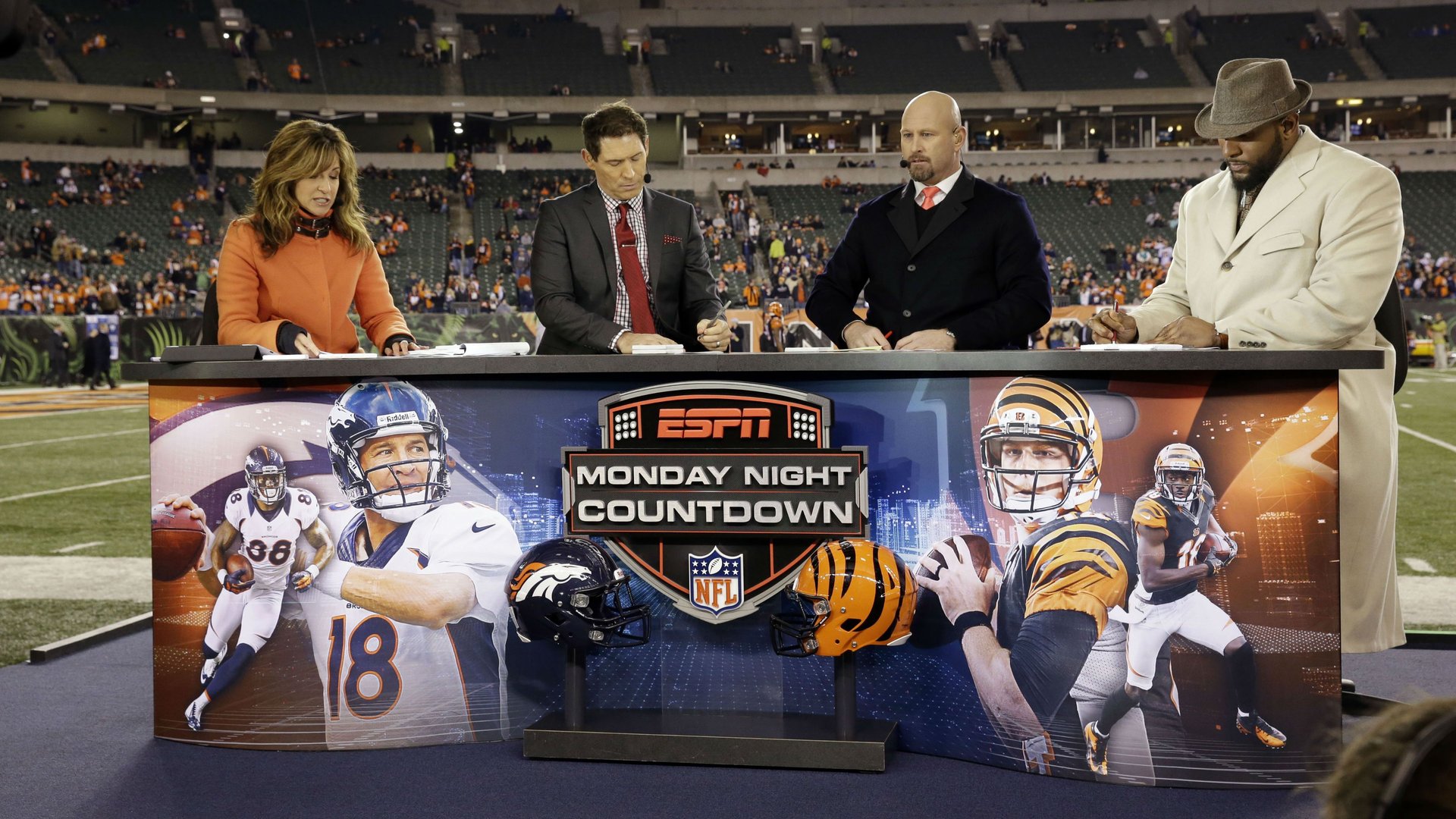The expensive sports TV bundle might be coming to an end sooner than you think
Facing the threat of cord-cutting head on, Rupert Murdoch’s satellite-TV provider Sky is reportedly considering replacing its current sports-TV package with cheaper offerings.


Facing the threat of cord-cutting head on, Rupert Murdoch’s satellite-TV provider Sky is reportedly considering replacing its current sports-TV package with cheaper offerings.
As of now, Sky’s sports package still includes the numbered channels at the regular rate of £49.50 ($64) a month. The Guardian reported that Sky plans to revamp its sports packages with an offering that starts at £18 a month. As part of the effort, it would reportedly do away with its numbered sports channels—Sky Sports 1, 2, 3, and so on—and replace them with channels devoted to specific sports like soccer, golf, and cricket. It already has a channel like that for the motorsport of Formula One, Sky Sports F1, which launched in 2012.
A spokesperson for Sky declined to comment, but told Quartz that the story was speculation.
If the Murdoch-owned TV company goes through with this, the shift from would come as it is trapped in some pretty pricey sports deals. Sky is reportedly paying more than £11 million per Premier League game, 67% more than it was paying in 2015. While sports are one of the last strongholds of live TV in Europe and the US, and live sporting events have not yet suffered the same drastic viewership declines as other TV programming, that may be starting to change. Ratings for live Premier League soccer matches reportedly fell by 19% for the 2016-17 season from the year before.
US sports cable network ESPN has been grappling with some of the same viewership and cost issues as Sky; it has lost 10 million subscribers since its peak in 2010, as customers replace their cable-TV subscriptions with streaming services like Netflix and Amazon and shift to slimmed-down pay-TV bundles that exclude the costly cable network.
ESPN is locked into a deal with the NFL (paywall), in which it pays $1.9 billion a year through 2021 for Monday Night Football games. That’s 73% more than it was paying in the last deal, which expired in 2013, even though viewership slid. It also had an NBA deal kick in recently for a hefty $1.4 billion a year.
ESPN is sold a little differently than Sky’s sports packages. The US network is grouped in with most standard pay-TV bundles in the country. That means customers pay for it as part of their regular $70-a-month or so TV packages, regardless of whether they watch the channel. And they don’t see how much it costs them in their monthly bill. (ESPN and its sister networks ESPN2, ESPNU, and SEC Network are about about $9 a month—more than Fox Sports and NBC Sports channels.)
Sky, meanwhile, sells its sports channels as extras on top of its basic-TV bundle, which starts at £22 a month for 270 channels. So that £49.50 a month Sky customers pay for the sports package is really more like £27.50, when you subtract the built-in cost of the basic bundle. (Customers cannot buy the sports channels without the basic package.)
But ESPN, too, is looking for new ways to make its channels more accessible, so that it can continue to justify spending big on sports contracts. It may soon have to give in on pricing as more customers turn to cheaper alternatives. ESPN has already joined most of the basic bundles from online-TV alternatives like Sling TV, PlayStation Vue, DirecTV Now, Hulu, and YouTube TV, which are less expensive than most traditional pay-TV offerings in the US.
And it’s launching a standalone service that customers can subscribe to online by the end of the year. Few details including the price are available, but it’s supposed to be more of a complement to flagship ESPN than an alternative. It would focus more on specific sports or teams, in order to make the most of the rights that ESPN owns but cannot fit into its regular channel lineup.
“While I think it’s possible that there’ll be an omnibus sports–multiple sports package offered direct-to-consumer, it’s more likely that consumers will have an opportunity to buy the sports they want, when they want it, as well,” Disney CEO Bob Iger said on a May earnings call.